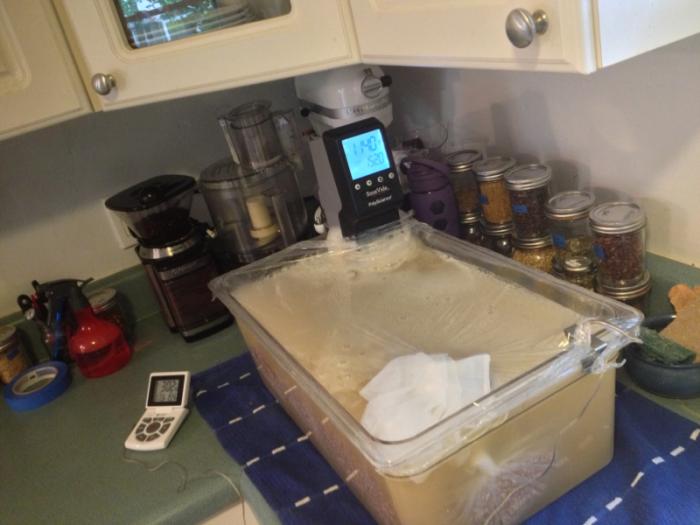Might be a strange one, but this has crossed my mind a few times now and thought I'd see if anyone else has had a similar thought or tried it.
If you're not familiar, sous vide('under vacuum') is a method of cookery where you vaccume seal food in a bag and cook the food in a water bath, generally at a lower temperature for longer periods.
Anyway, I was thinking, what if you applied this technology/procedures to brewing? What if you were to take your unhopped extract and infused it via sous vide, I figure you can leave it for a long period, without risking losing volume, getting extra colour ect. And infusing a **** ton more more flavour then with traditional methods? Sous vide also allows you to have 'to the degree' control, absolutely no chance of the contents of the bag exceeding the temperature you've set on the machine.
I may be able to get a hold of the equipment to try this, but thought I'd ask some opinions first, before I waste my time/money or have completely missed a reason why this wouldn't work.
If you're not familiar, sous vide('under vacuum') is a method of cookery where you vaccume seal food in a bag and cook the food in a water bath, generally at a lower temperature for longer periods.
Anyway, I was thinking, what if you applied this technology/procedures to brewing? What if you were to take your unhopped extract and infused it via sous vide, I figure you can leave it for a long period, without risking losing volume, getting extra colour ect. And infusing a **** ton more more flavour then with traditional methods? Sous vide also allows you to have 'to the degree' control, absolutely no chance of the contents of the bag exceeding the temperature you've set on the machine.
I may be able to get a hold of the equipment to try this, but thought I'd ask some opinions first, before I waste my time/money or have completely missed a reason why this wouldn't work.



